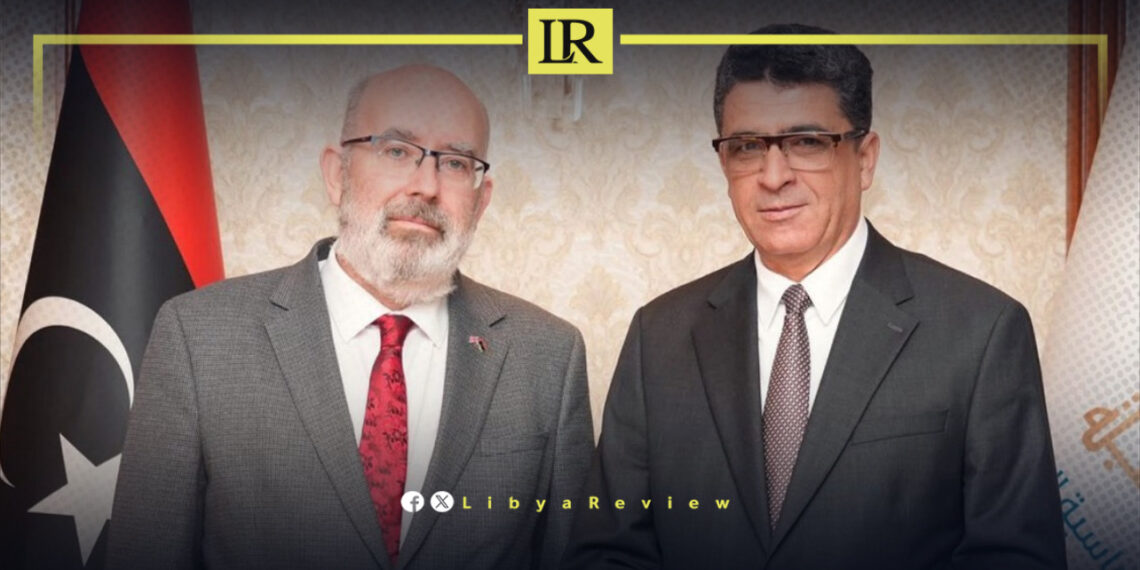Khaled Shakshak, the head of the Libyan Audit Bureau, welcomed the British Ambassador to Libya, Martin Longden, to discuss the prospects of joint cooperation in enhancing transparency and combating corruption.
The meeting focused on the regulatory role of the Audit Bureau as an independent institution that contributes to the credibility of financial statements and ensures the optimal use of public resources.
The two parties discussed the importance of international partnerships in institutional development and building, which can enhance performance efficiency and improve financial monitoring mechanisms according to international standards.
Ambassador Longden praised the efforts of the Audit Bureau in establishing principles of good governance and affirmed his country’s support for initiatives aimed at developing regulatory work and enhancing financial integrity in Libya.
Libya has been in chaos since a NATO-backed uprising toppled longtime leader Muammar Gaddafi in 2011. The county has for years been split between rival administrations.
Libya’s economy, heavily reliant on oil, has suffered due to the ongoing conflict. The instability has led to fluctuations in oil production and prices, impacting the global oil market and Libya’s economy.
The conflict has led to a significant humanitarian crisis in Libya, with thousands of people killed, and many more displaced. Migrants and refugees using Libya as a transit point to Europe have also faced dire conditions.
The planned elections for December 2021 were delayed due to disagreements over election laws and the eligibility of certain candidates. This delay has raised concerns about the feasibility of a peaceful political transition.
Despite the ceasefire, security remains a significant concern with sporadic fighting and the presence of mercenaries and foreign fighters. The unification of the military and the removal of foreign forces are crucial challenges.


